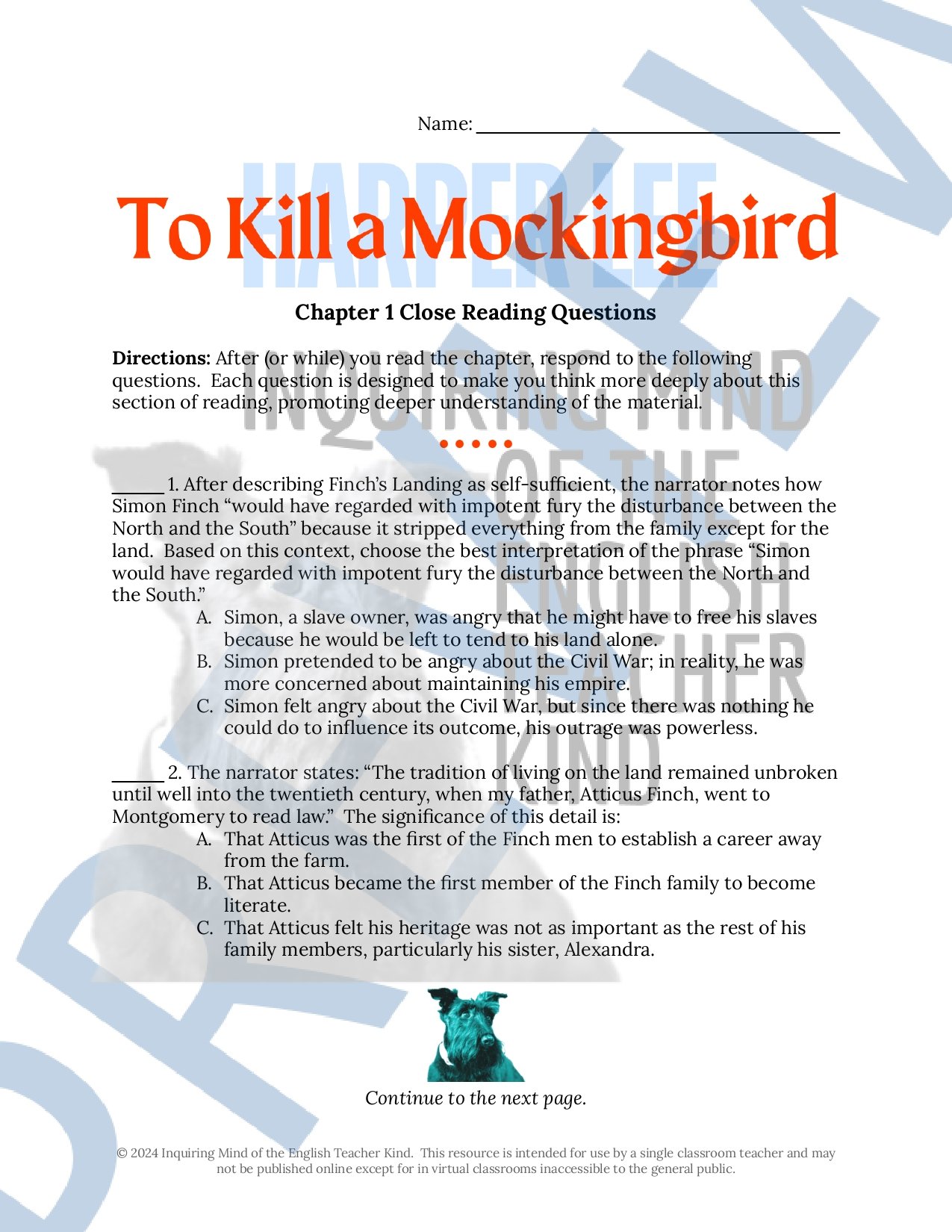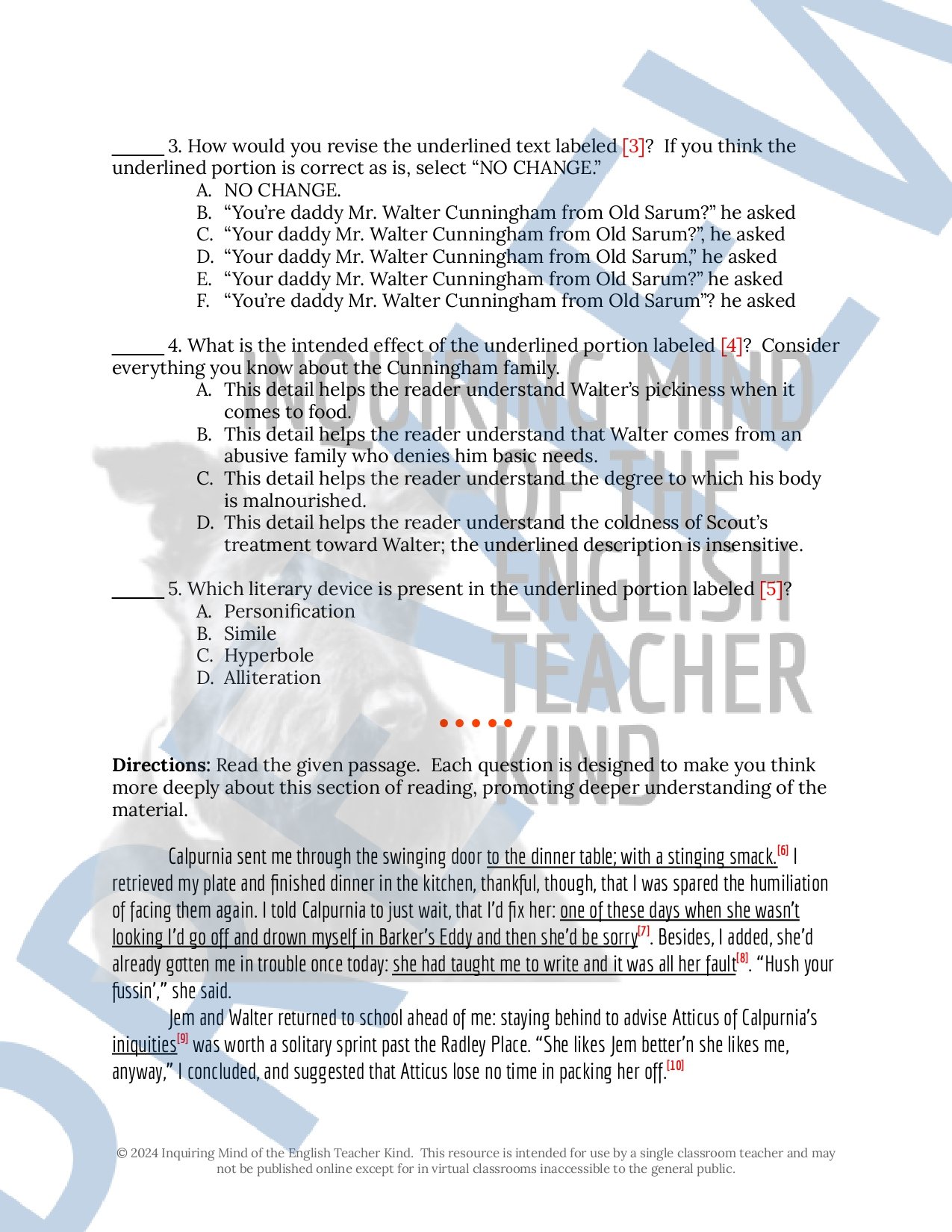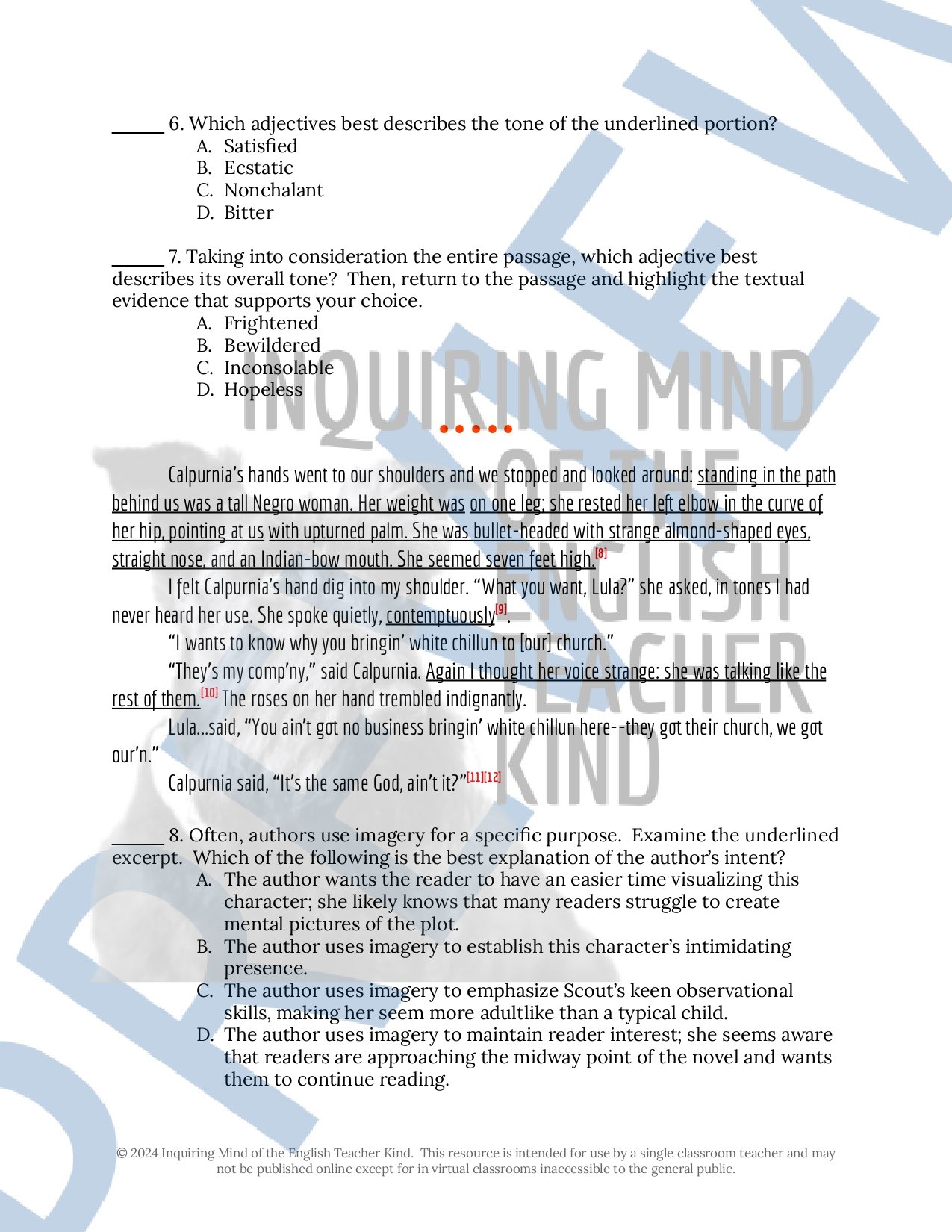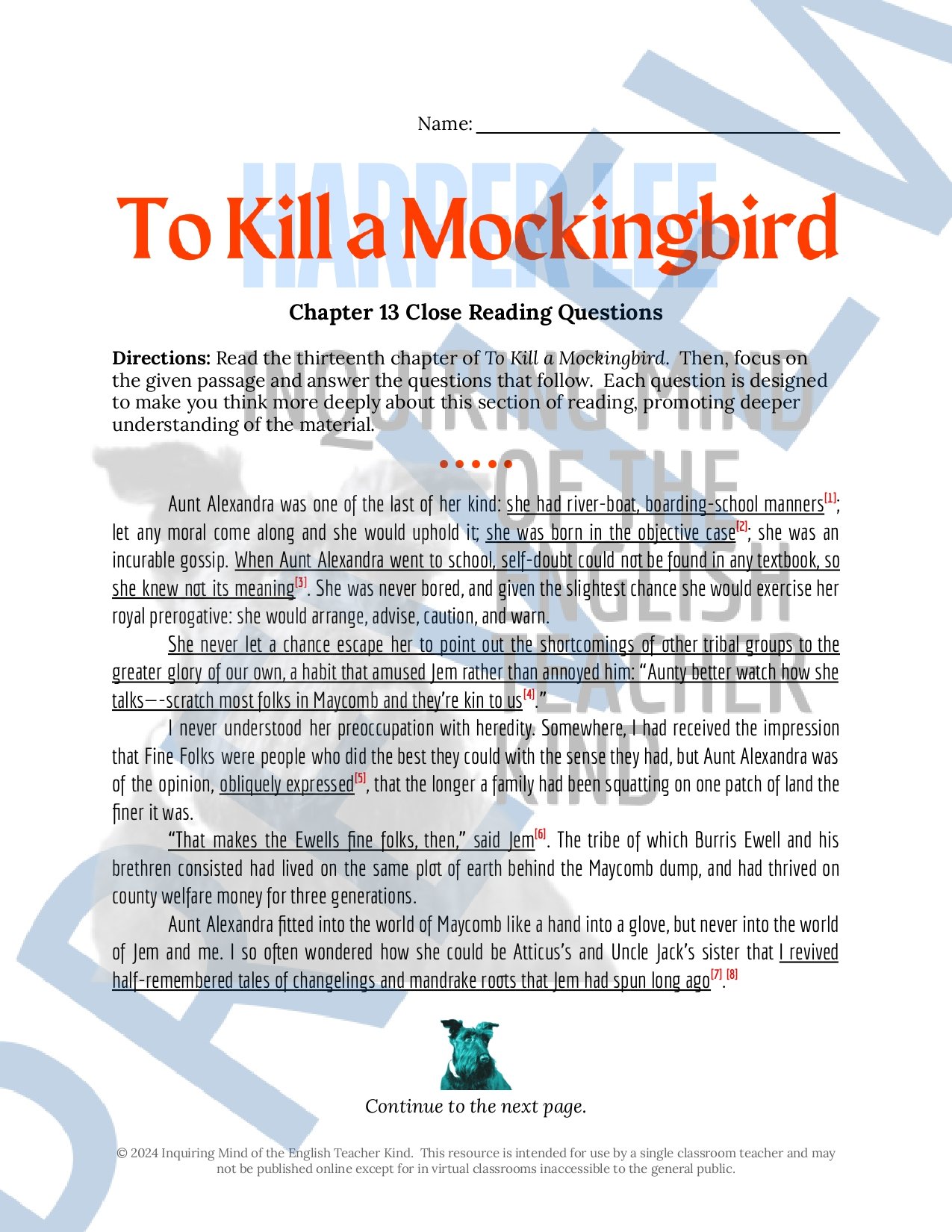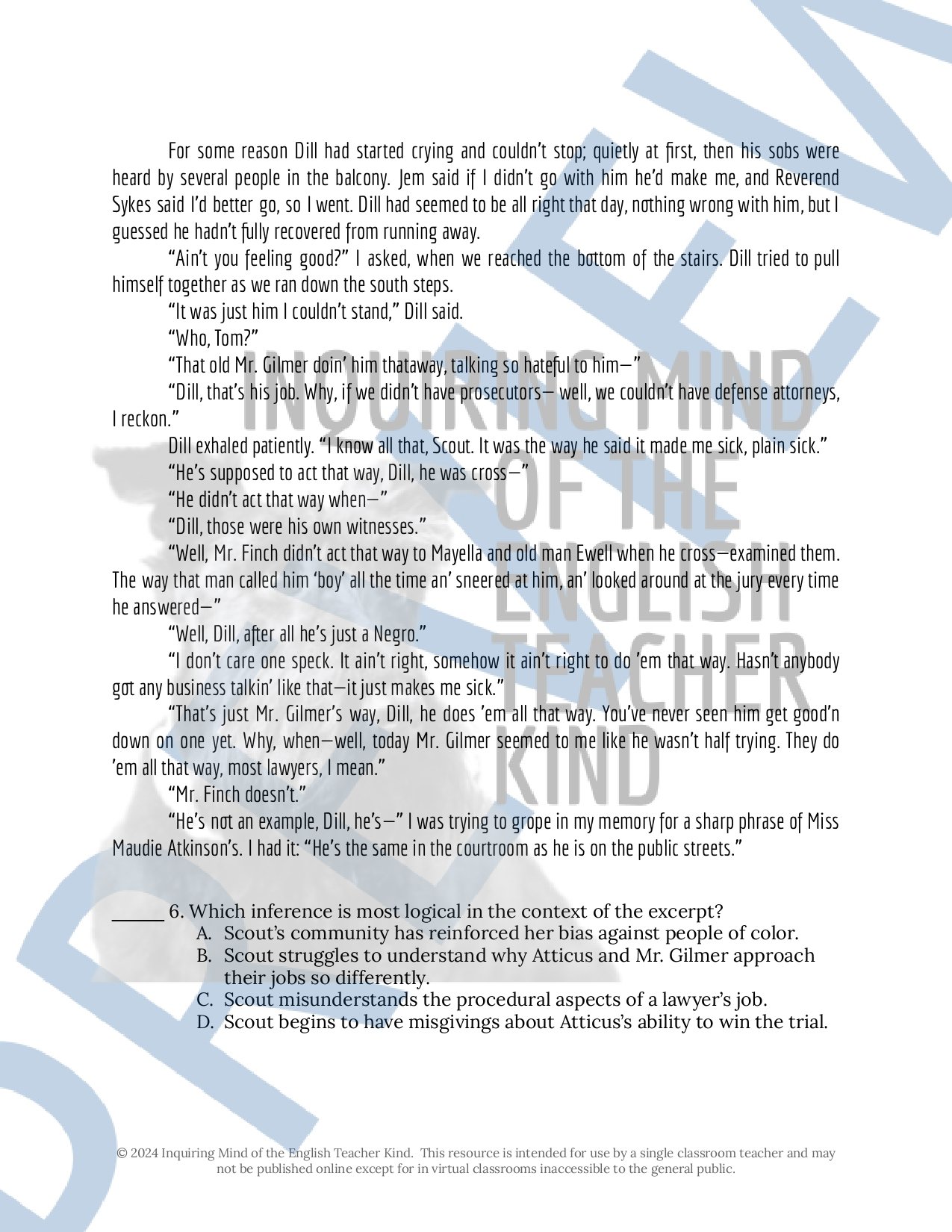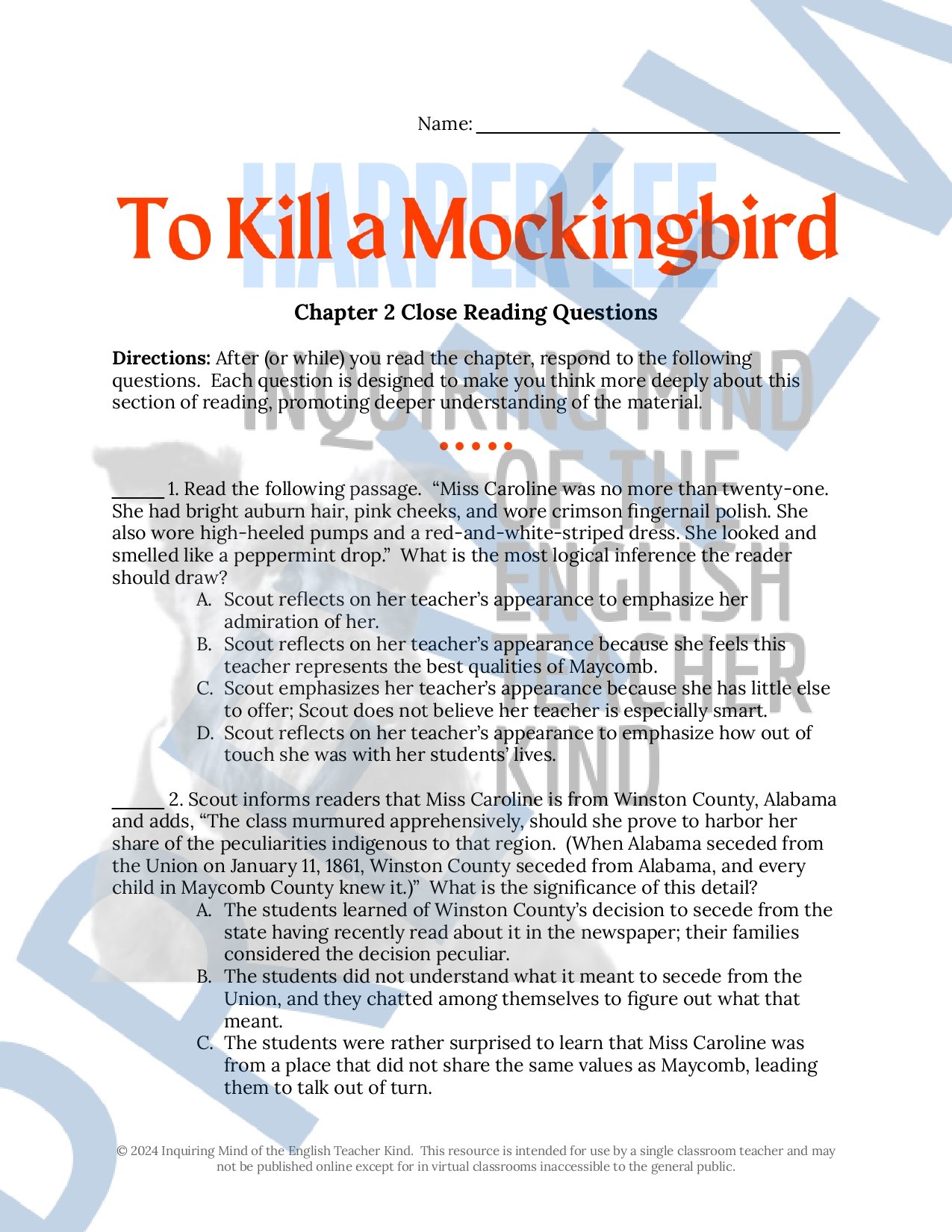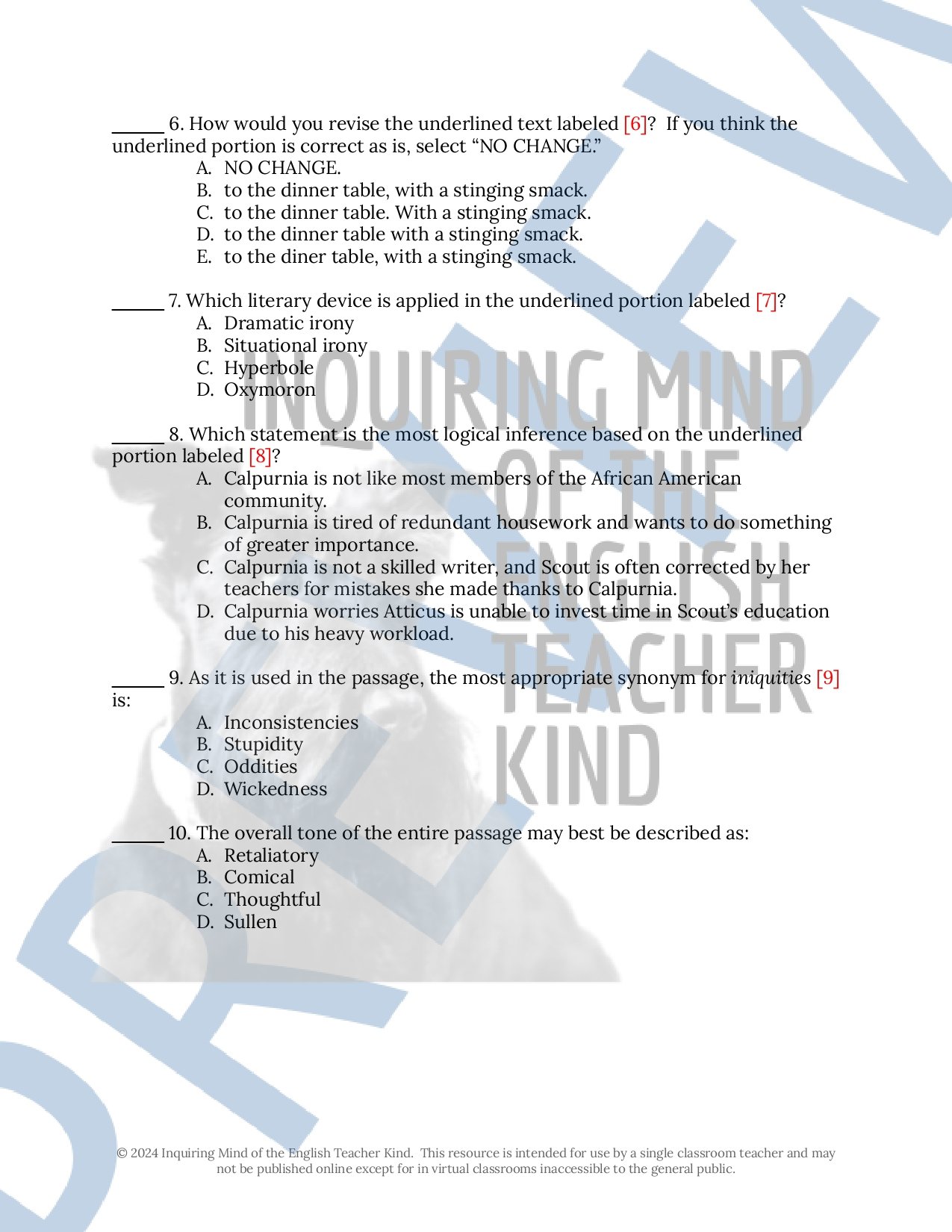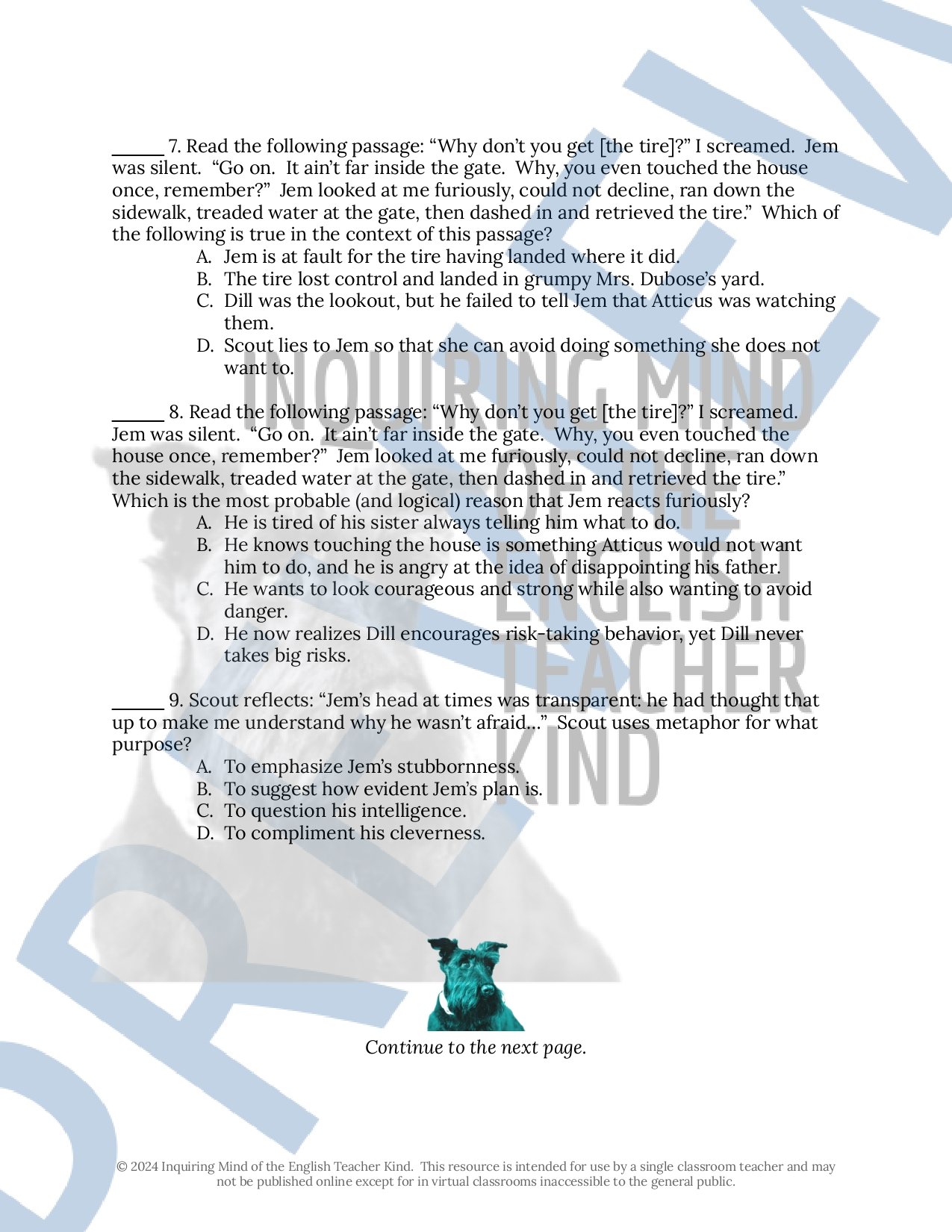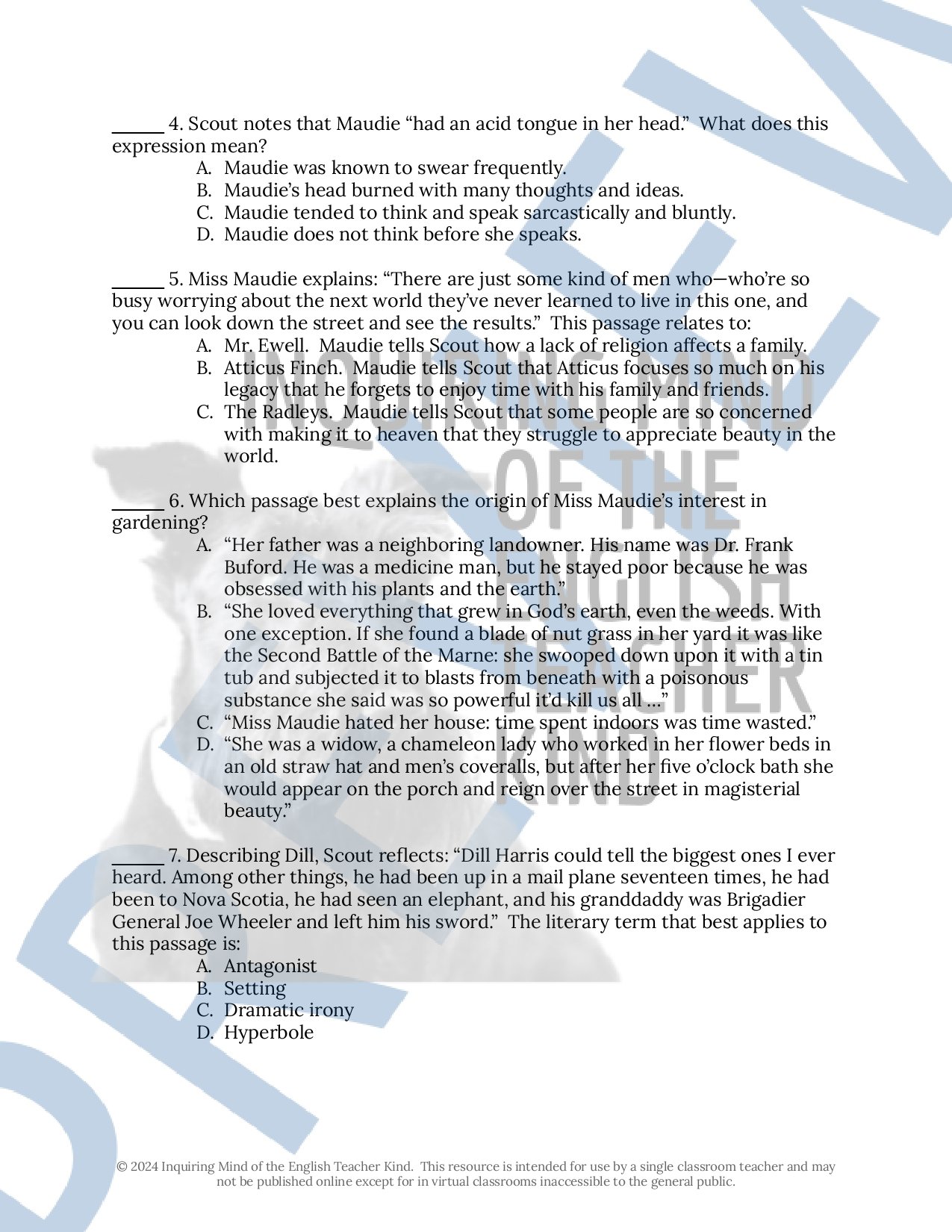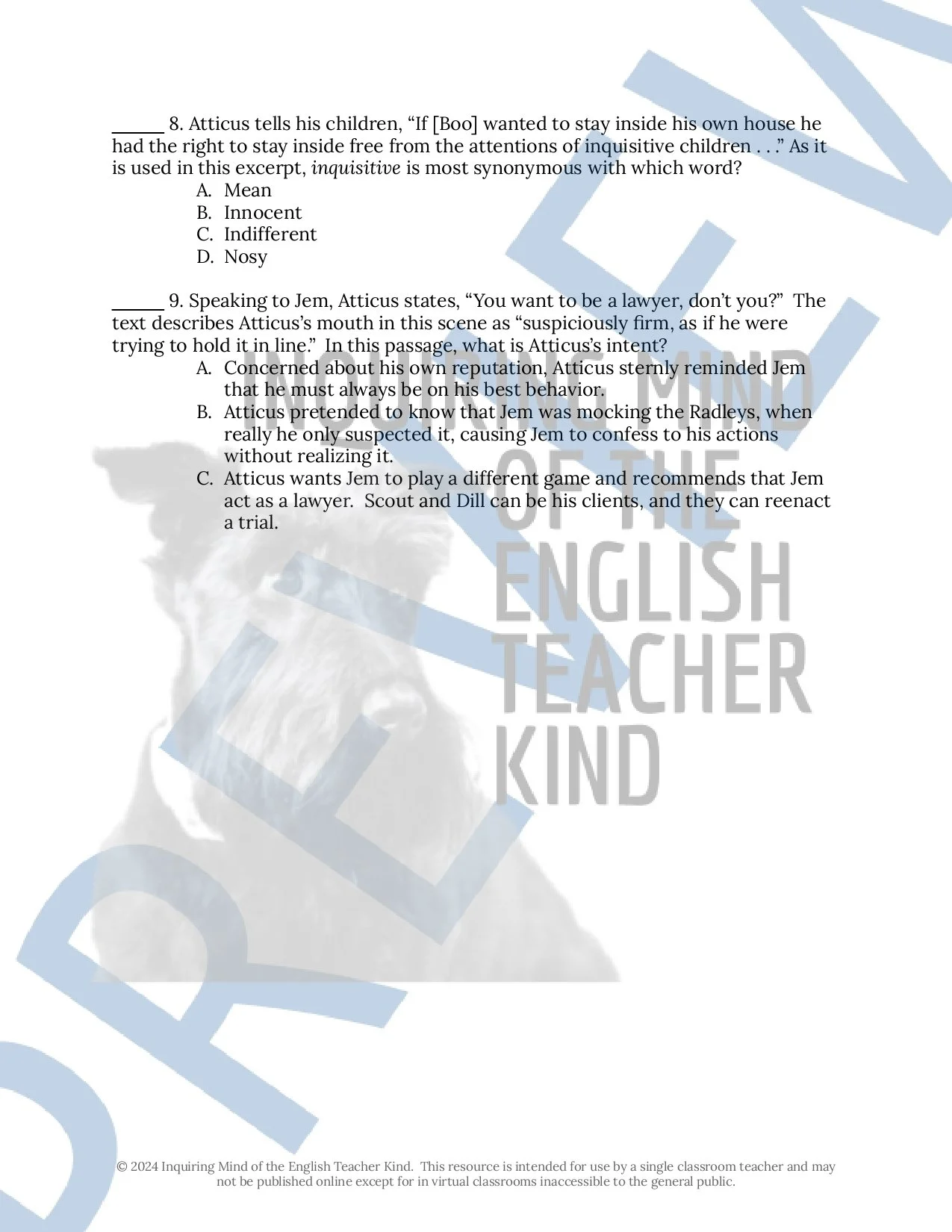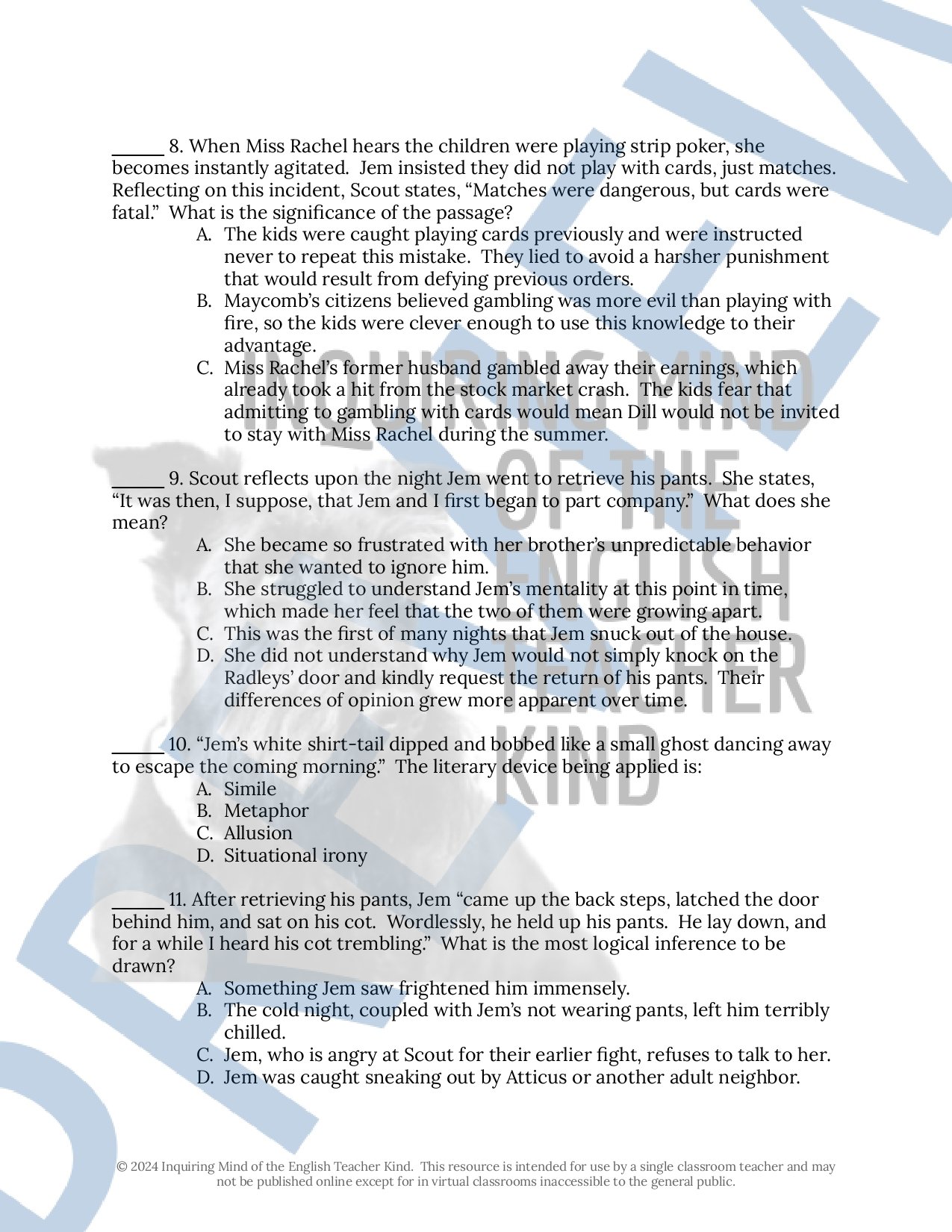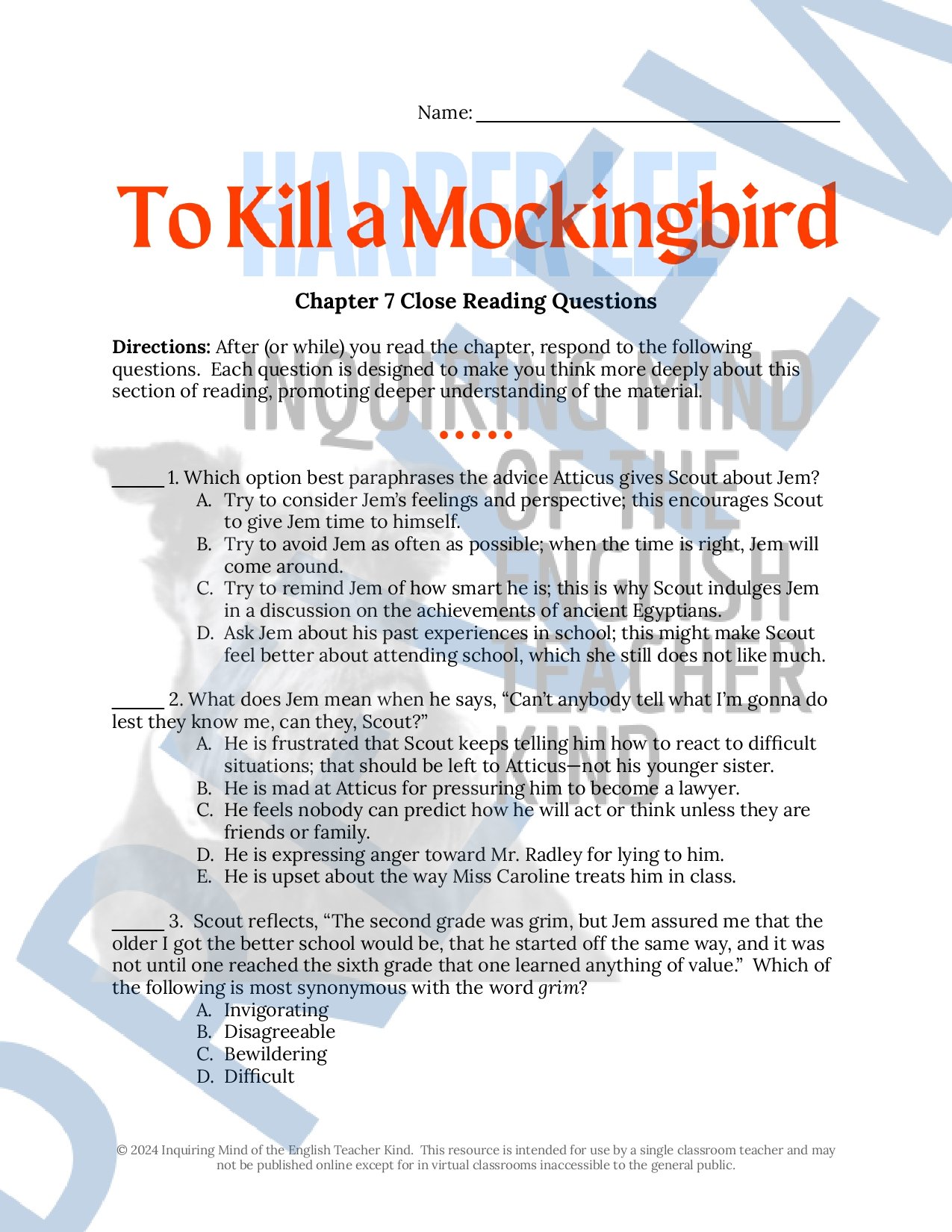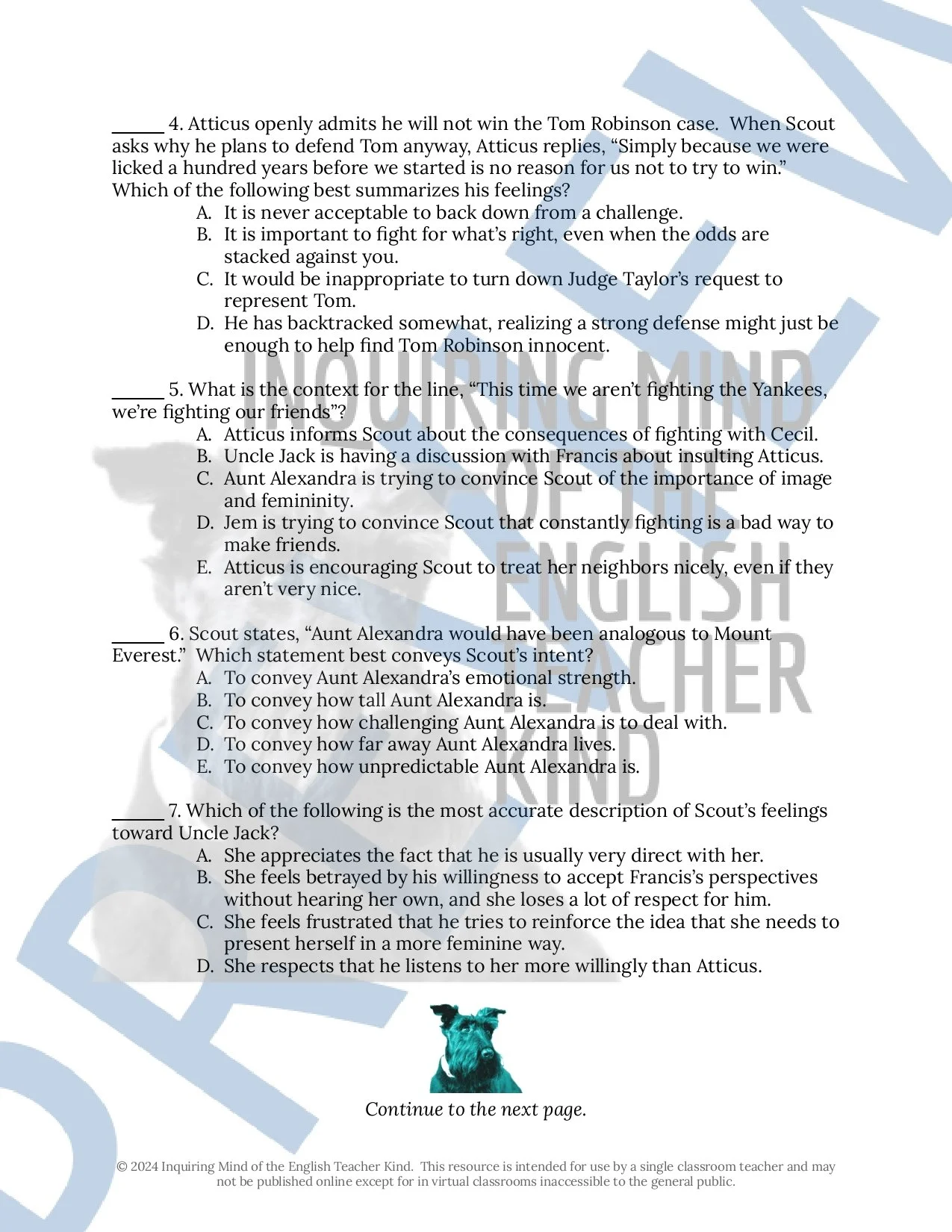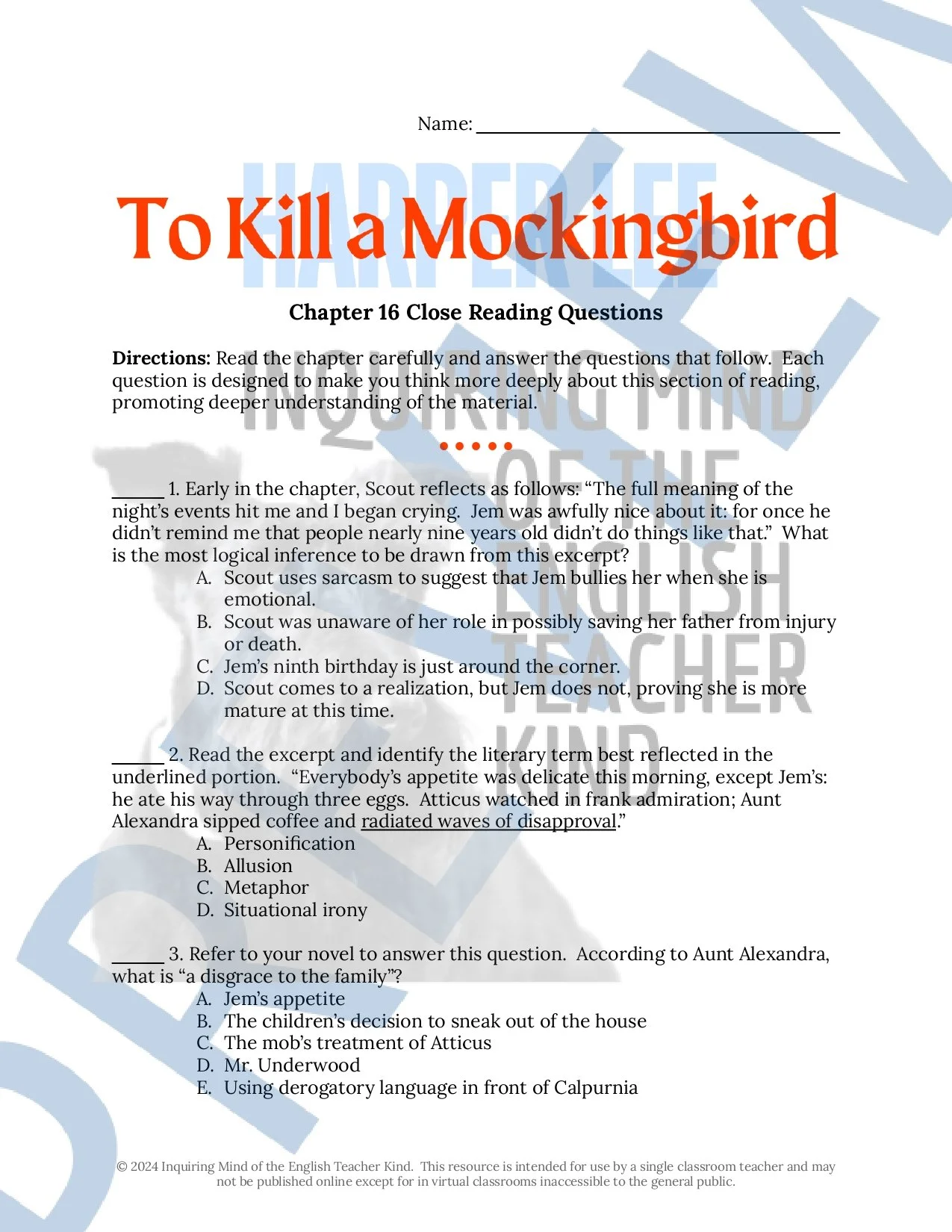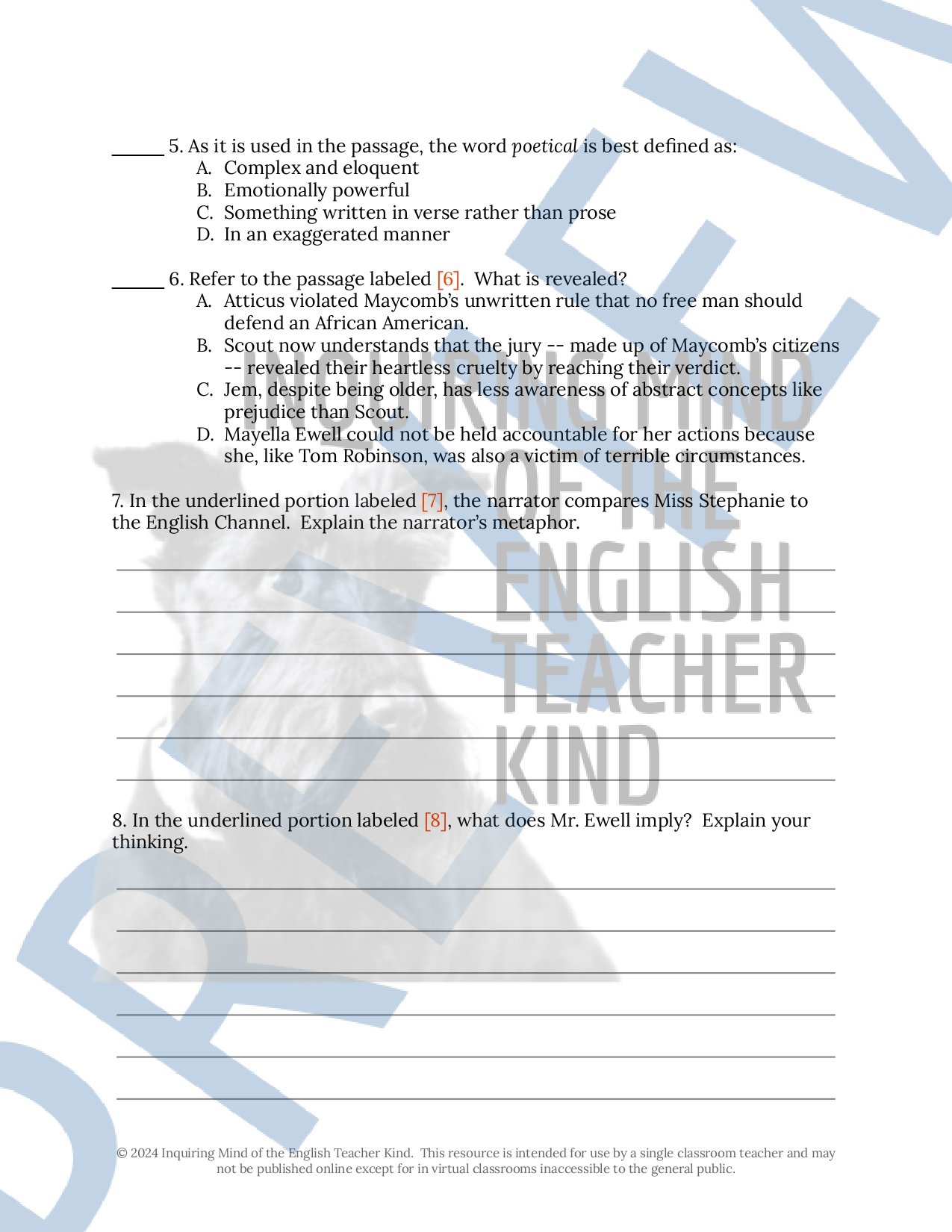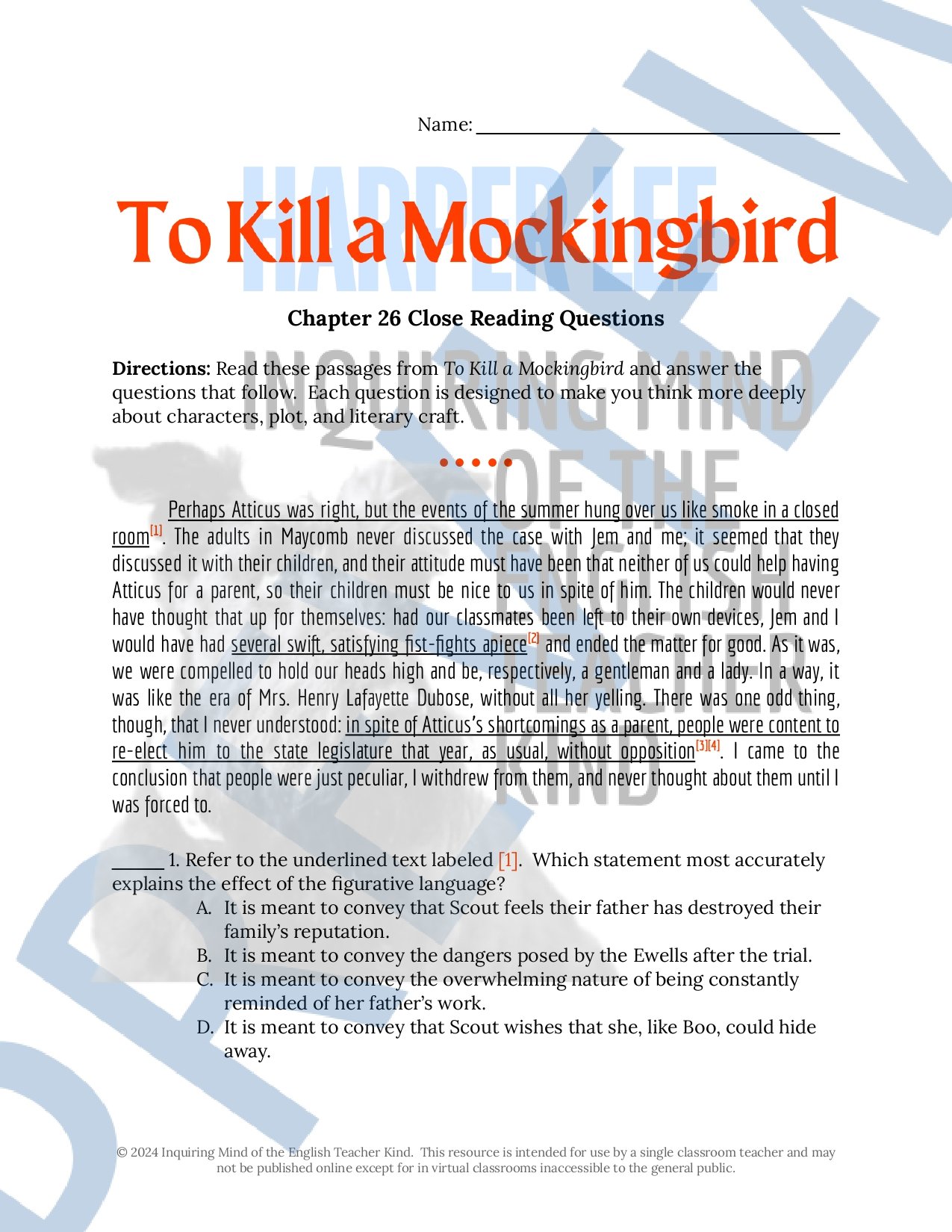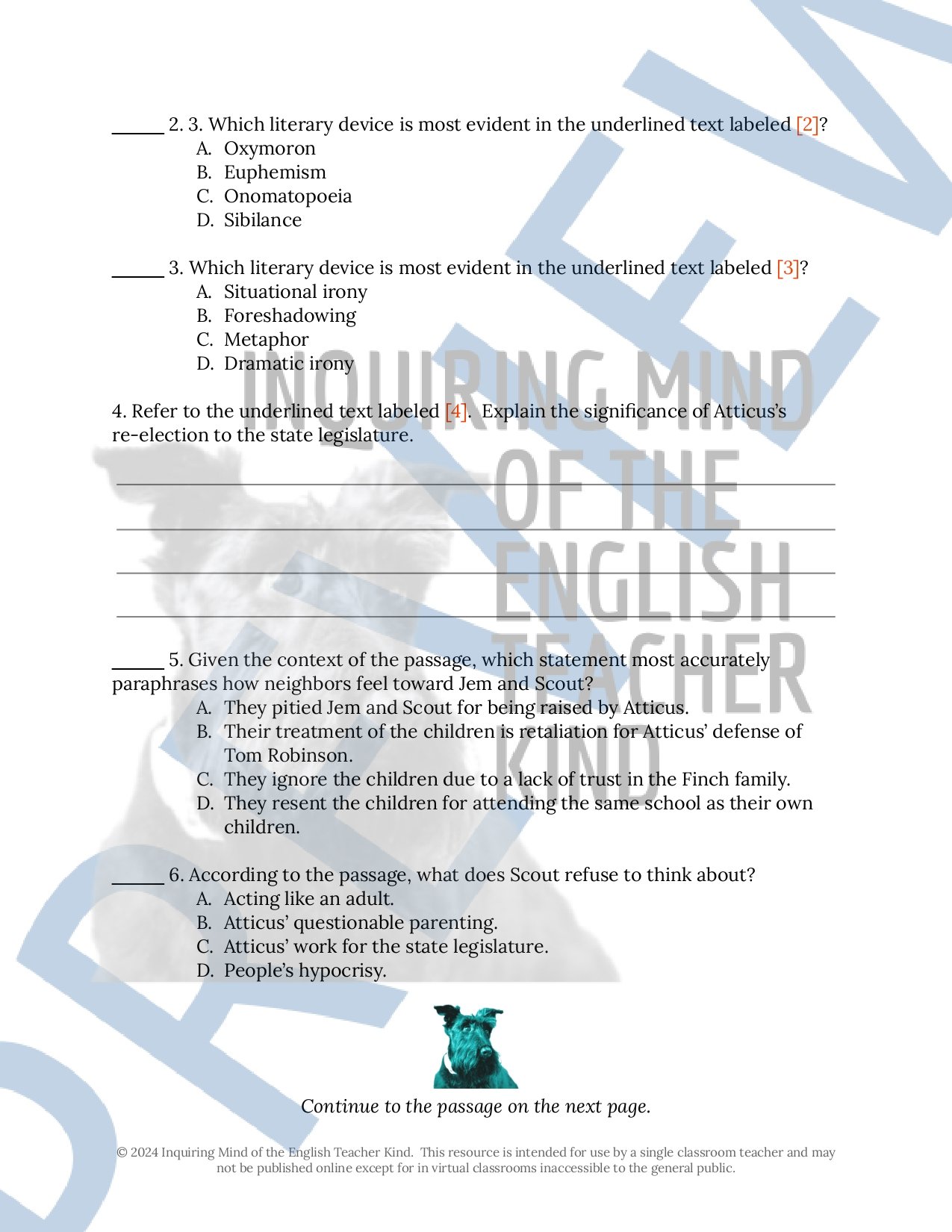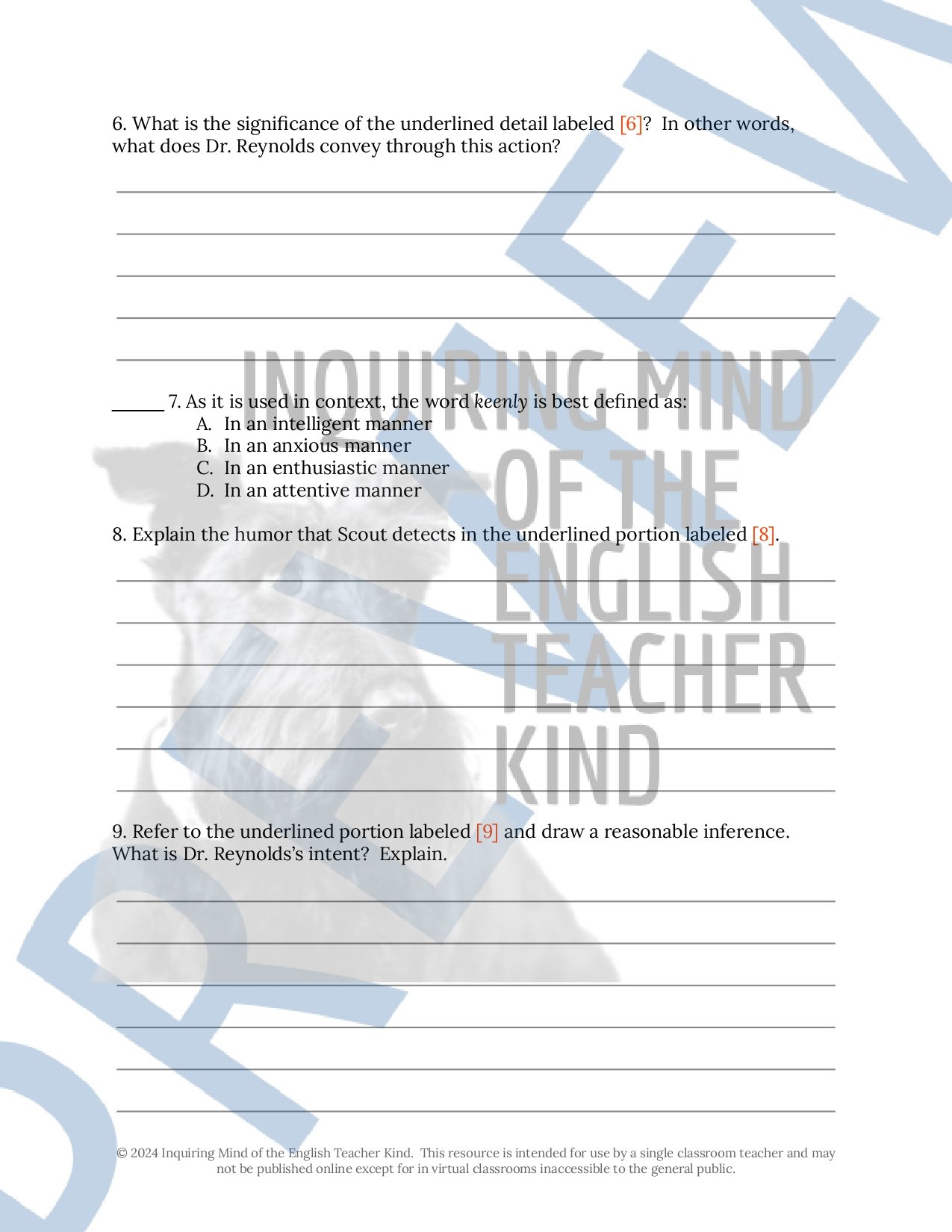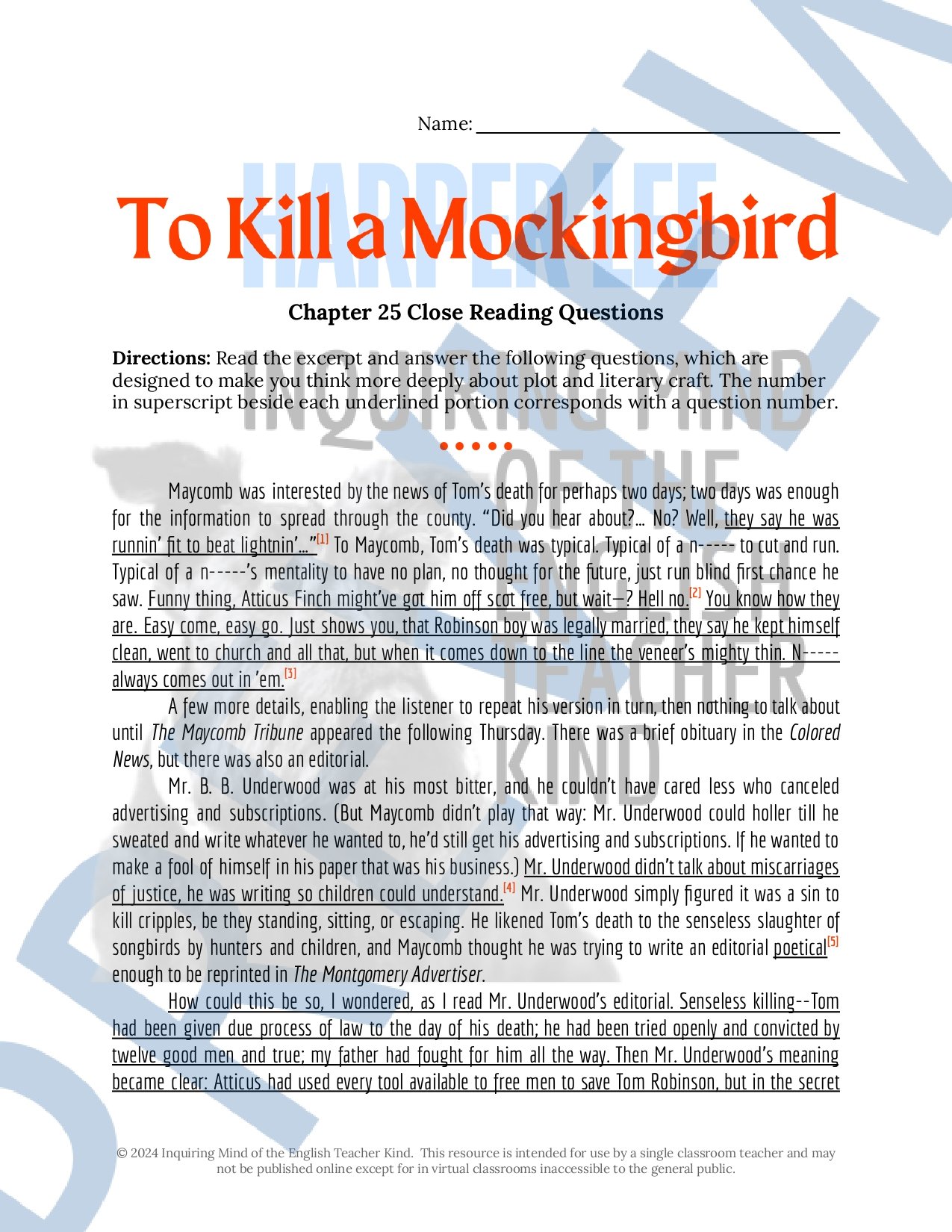 Image 1 of 19
Image 1 of 19

 Image 2 of 19
Image 2 of 19

 Image 3 of 19
Image 3 of 19

 Image 4 of 19
Image 4 of 19

 Image 5 of 19
Image 5 of 19

 Image 6 of 19
Image 6 of 19

 Image 7 of 19
Image 7 of 19

 Image 8 of 19
Image 8 of 19

 Image 9 of 19
Image 9 of 19

 Image 10 of 19
Image 10 of 19

 Image 11 of 19
Image 11 of 19

 Image 12 of 19
Image 12 of 19

 Image 13 of 19
Image 13 of 19

 Image 14 of 19
Image 14 of 19

 Image 15 of 19
Image 15 of 19

 Image 16 of 19
Image 16 of 19

 Image 17 of 19
Image 17 of 19

 Image 18 of 19
Image 18 of 19

 Image 19 of 19
Image 19 of 19




















To Kill a Mockingbird Chapters 29-31 Quizzes, Inference Worksheets, and Vocabulary Games
Evaluate reading comprehension, support vocabulary development, and sharpen critical thinking and literary craft analysis skills with these activities and assessments covering chapters 29, 30, and 31 of To Kill a Mockingbird by Harper Lee. Two plot-based quizzes, three close reading inference worksheets, three vocabulary activities, and answer keys are included. Materials are delivered in editable Word Document and printable PDF formats. (Alternatively, a Google Drive bundle option is available.) By engaging with these resources, students will:
Read for literal comprehension
Consult reference materials to learn and verify word meanings as needed
Discern the most proper application of words as they are used in sentences
Infer the intended effects of the author's word choices and narrative techniques
Describe tone in context
Explore how complex characters think, behave, interact, and develop
Apply knowledge of various literary devices including idiom, metaphor, personification, and assonance
Determine the symbolic value of a tree in the context of a passage
Support claims and inferences with sound reasoning and relevant textual evidence
Write about literature with clarity, accuracy, and precision
Come to class better prepared to discuss works of fiction
Instructional materials are available for a variety of novels:
Evaluate reading comprehension, support vocabulary development, and sharpen critical thinking and literary craft analysis skills with these activities and assessments covering chapters 29, 30, and 31 of To Kill a Mockingbird by Harper Lee. Two plot-based quizzes, three close reading inference worksheets, three vocabulary activities, and answer keys are included. Materials are delivered in editable Word Document and printable PDF formats. (Alternatively, a Google Drive bundle option is available.) By engaging with these resources, students will:
Read for literal comprehension
Consult reference materials to learn and verify word meanings as needed
Discern the most proper application of words as they are used in sentences
Infer the intended effects of the author's word choices and narrative techniques
Describe tone in context
Explore how complex characters think, behave, interact, and develop
Apply knowledge of various literary devices including idiom, metaphor, personification, and assonance
Determine the symbolic value of a tree in the context of a passage
Support claims and inferences with sound reasoning and relevant textual evidence
Write about literature with clarity, accuracy, and precision
Come to class better prepared to discuss works of fiction
Instructional materials are available for a variety of novels:
Preview this resource:
Evaluate reading comprehension, support vocabulary development, and sharpen critical thinking and literary craft analysis skills with these activities and assessments covering chapters 29, 30, and 31 of To Kill a Mockingbird by Harper Lee. Two plot-based quizzes, three close reading inference worksheets, three vocabulary activities, and answer keys are included.












